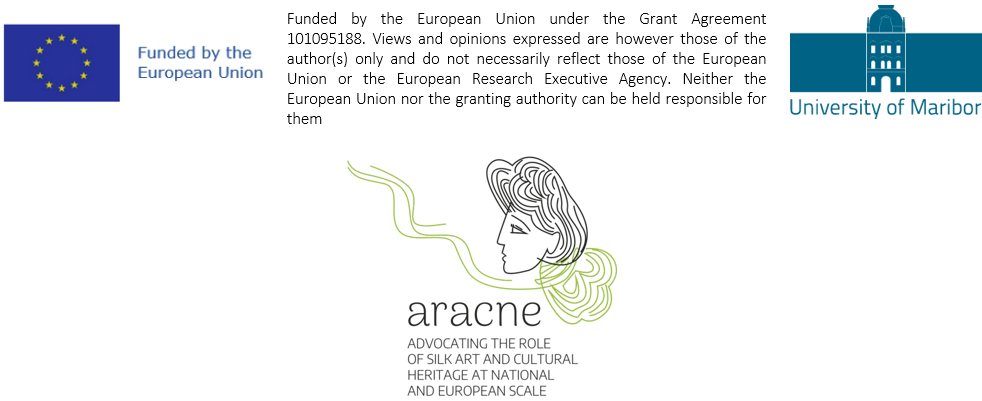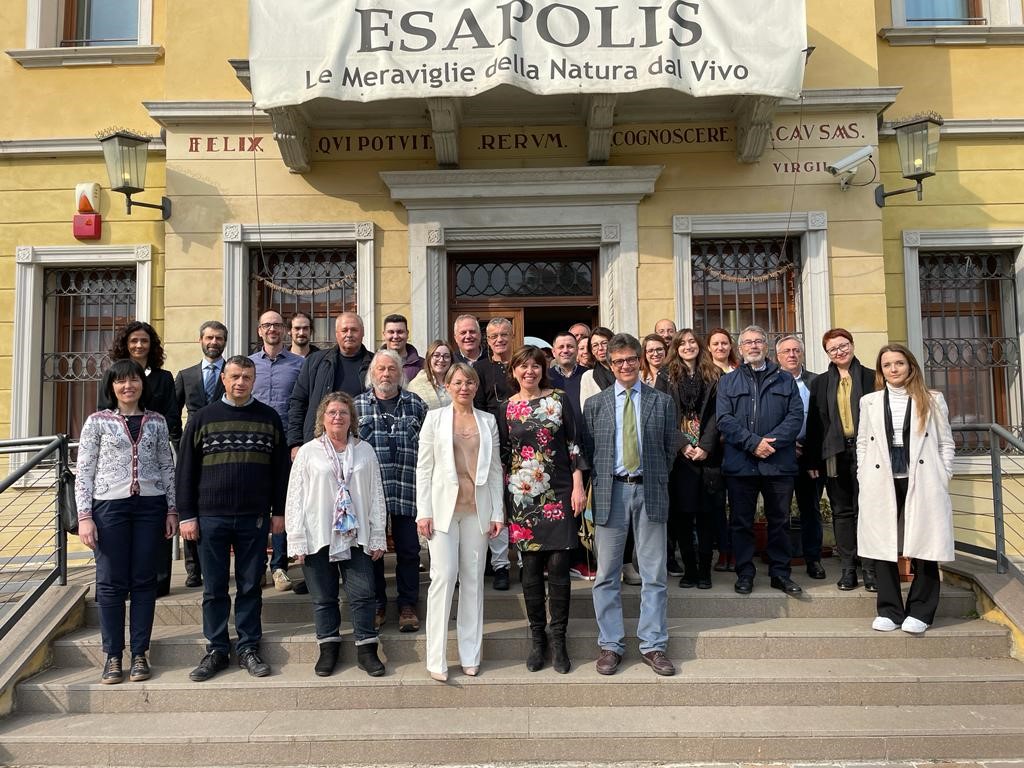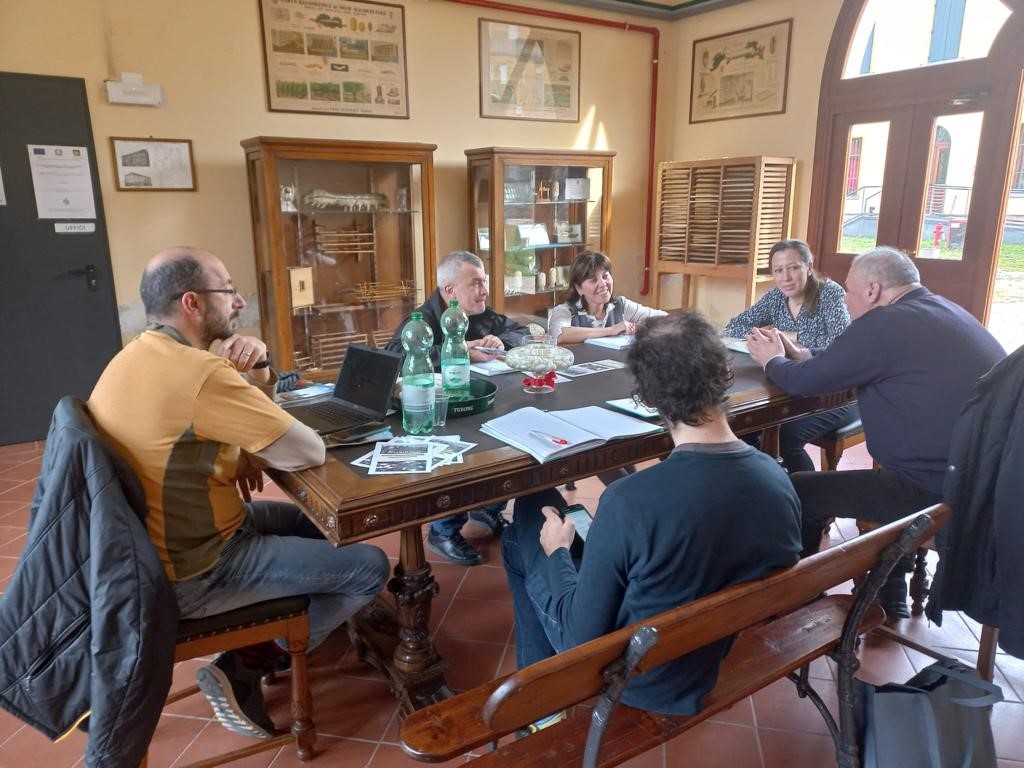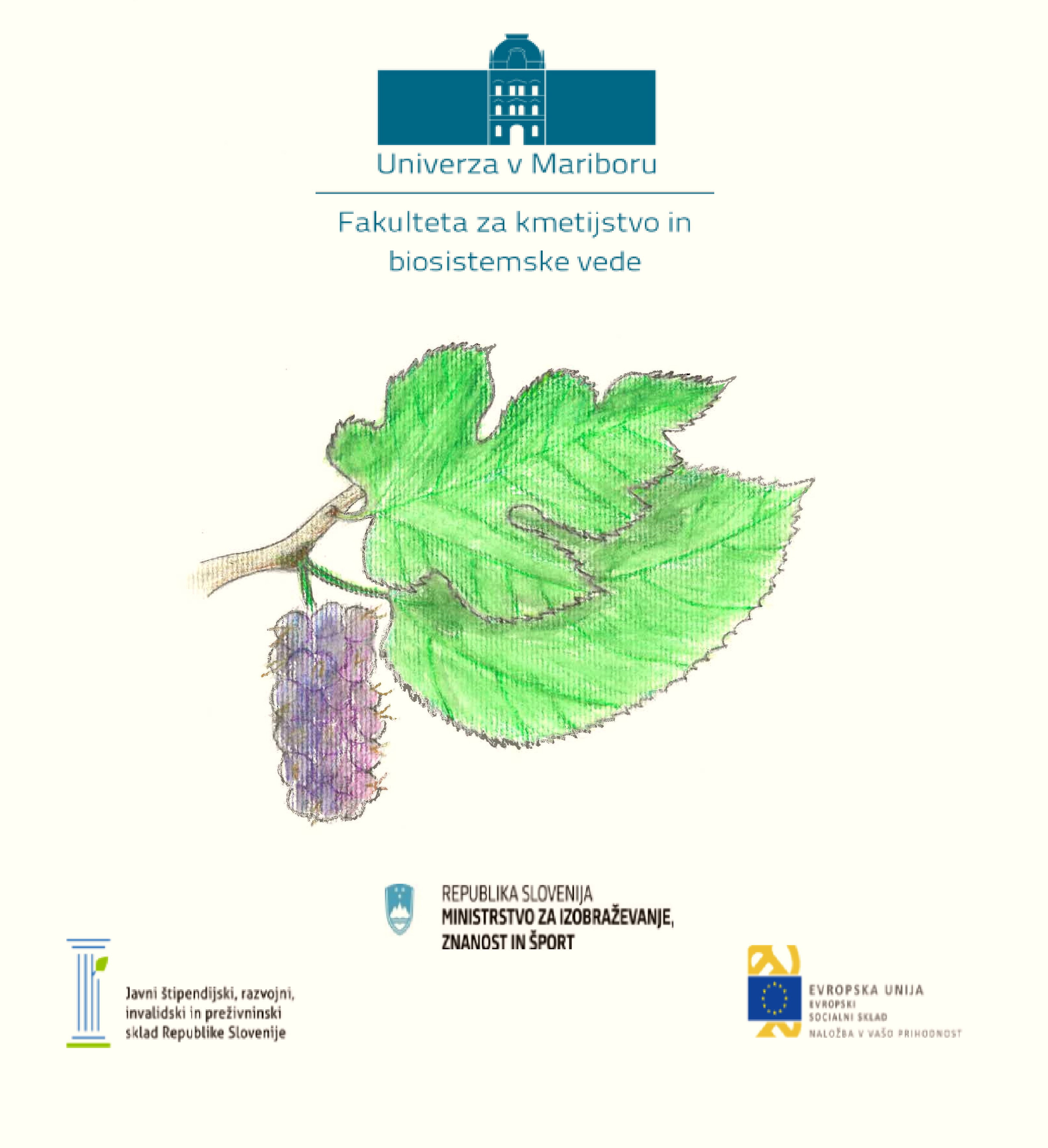PRESS RELEASE

REBIRTH OF THE SILK INDUSTRY: KICK-OFF OF THE HORIZON PROJECT “ARACNE”
In March, the University of Maribor started the implementation of the European Horizon project in the field of revival of European cultural heritage under the coordination of CREA Agriculture and Environment (Consiglio per la Ricerca in Agricoltura e l'Analisi dell'Economia Agraria), Italy.
The project’s the acronym ARACNE stands for "Advocating the Role of silk Art and Cultural heritage at National and European scale", whose name is inspired by the weaver transformed into a spider by the goddess Athena in Greek mythology, aims to exploit silk as the common element of the pan-European culture and history.
Under the auspices of the University of Maribor, 3 faculties are interdisciplinarily involved in the project (Faculty of Agriculture and Life Sciences, Faculty of Mechanical Engineering and Faculty of Electrical Engineering, Informatics and Computer Science), which involves the research of old mulberry trees (natural heritage) and the establishment of new plantations, the exploration of silk products in museums and their reinterpretation in contemporary design, the study of the use of silk as a source for new materials and advanced applications, and the promotion of the intangible and technical heritage of sericulture.
ARACNE is one of the three projects funded by the European Commission that emerged victorious over a fierce competition with 55 projects in the framework of the call "Research and innovation on cultural heritage and Cultural and Creative Industries" (HORIZON-CL2-2022-HERITAGE-01-02); it has the ambition to contribute to the creation of a broad and connected innovation ecosystem related to silk in Europe, including the industrial sector, and intended as a tool for expressing cultural and landscape heritage, thus, connecting culture, tradition, and new industrial production within an ideal network of exchanges and visions. ARACNE has a duration of 36 months and involves 11 partners and 3 associated partners from 7 European and non-European countries.
With an overall budget of approximately 3 million euros, the project aims to achieve the following specific objectives:
- Enhancement of knowledge and memory for the renaissance of a European Silk Innovation Ecosystem
- Co-creation of human-centred and place specific creative silk-based solutions leveraging on digital and cutting-edge technologies
- Implementation of innovative strategies and business, governance and financing models for the involved CCIs organisations and SMEs, building on previous research
- Support to the establishment of a cultural European Silk Route, based on the tangible and intangible silk cultural heritage and landscapes
- Raising awareness of ARACNE results and impacts among different stakeholders of the territories and CCIs of the silk sector and raising the expectation for the constitution of a European Silk Route in support to the European silk CH and silk CCIs
- Enhancing the European cultural identity and strengthen European competitiveness for a more resilient post-crisis society
- Contribution to the European Green Deal, the New European Bauhaus and the Sustainable Development Goals (SDGs).
On March 6th and 7th, CREA Agriculture and Environment, the coordinator of ARACNE, officially launched the project, hosting its kick-off meeting at the Padua headquarters. During the kick-off meeting, the partners presented the individual work packages that characterize the project and defined an implementation strategy that considers not only the multidisciplinarity of ARACNE, but also the cultural and historical identities of the many countries involved (Italy, Spain, France, Slovenia, Greece, Bulgaria, and Georgia), all linked by the ancient art of silk production and processing.
The start-up of the project includes an inventory of the sericulture heritage carried out through studies and field research made by historians and researchers, also involving schools. Therefore, a wealth of knowledge will be available not only for tourism purposes for people travelling along the future European Silk Route, but also to classify and record all the different mulberry cultivars and silkworm strains, traceable in the involved territories, and to recover their history. Once reproduced and selected, plants and silkworms will be available for European farmers to produce both zero-kilometre silk and various by-products for different uses
The project activities will support European companies operating in the Cultural and Creative Industries sector, which can promote and strengthen a common cultural and artistic heritage centred on silk. The project also aims to prevent the loss of know-how and traditional technical and cultural skills; in fact, this loss has led to a decline in the production of the fibre and, consequently, has damaged the competitiveness of these companies in fashion, art, design, and product communication.
The development and revitalization of the sericulture sector in the countries involved in the ARACNE consortium will also be strategic for the future realization of the European Silk Route, strongly desired by the Council of Europe and by the local and regional authorities; it is intended as a cultural itinerary capable of linking Europe around the silk arts and effectively promoting their immense material and immaterial cultural heritage.
Behind the project, there is a carefully constructed consortium made up of 6 universities and research centres, 3 museums, a cultural association, a cultural foundation, 2 cultural and creative SMEs, a finance and innovation consulting company, and an international organization.
The Consortium's partners include the following members:
CREA – Agriculture and Environment (Consiglio per la Ricerca in Agricoltura e l'Analisi dell'Economia Agraria), Italy,
- Iniziativa Cube (Italy)
- State Silk Museum of Tbilisi (Georgia)
- Scientific Center on Sericulture (Bulgaria)
- Cultural Foundation of Piraeus Bank Group (Greece)
- University of Maribor (Slovenia)
- University of Athens (Greece)
- Murcia Institute for Agriculture Research and Development (Spain)
- D'orica Benefit Corporation (Italy)
- “Silk Trails – From the Cévennes to the Alpujarras” Association (France)
- Sericyne (France)
- University of Padua (Italy)
- Council Of Europe (France)
- National Silk Art Museum of Soufli (Greece)

ARACNE project partners with coordinator dr. Silvio Cappellozza, CREA-Agriculture and Environment in front of the museum Esapolis in Padua.

Meeting of the project group for research on the European mulberry and silkworm heritage.
